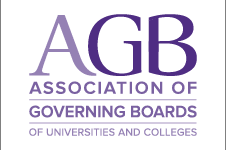Governance & Ownership
Bay Atlantic University is a non-profit institution of higher education. The founding company, BAU LLC, was initially founded as a for-profit venture to secure necessary financing for the university’s initial operations and has transitioned to a non-profit entity.
The control of university operations rests with its Governing Board. The main function of the Board, as described in the bylaws, is twofold: to develop policies for the advancement of Bay Atlantic University, and to support the president/CEO of the university with the implementation of those policies. In addition, Bay Atlantic University’s Board provides guidance, monitoring, and assistance to the president/CEO of the university in public affairs and in building key alliances to assist in and support the growth of the university. The Board gathers formally twice a year, October or November in Fall and April or May in Spring.
Although the Board is responsible for assuring that all university departments comply with the policies, procedures, and regulations of all state, federal and accreditation agencies, it does not participate in the details of daily operations and institutional management, which are delegated to the university president. The board appoints the President/CEO of the university who is responsible for the overall management and accountable to the Board.
The President/CEO delegates specific responsibilities to members of the executive team: Chief Financial Officer (CFO), Chief Academic Officer and Institutional Effectiveness, and Chief Growth Officer. Each member of the administrative staff is fully accountable for the operation of the respective department of the university. The CFO oversees the financial affairs, the facilities including technological infrastructure and human resources. The CAO is responsible for the overall leadership, management and organization of the university’s academic affairs. The Dean also oversees academic advancement, academic quality, career counseling, registrar, and library services. The CGO is responsible for the marketing and admissions operations and the enrollment growth of the university. All these officers report directly to the President/CEO.
 Bay Atlantic University is a member of Association of Governing Boards of Universities and Colleges (AGB).
Bay Atlantic University is a member of Association of Governing Boards of Universities and Colleges (AGB).
Board of Trustees
The Board hasan Executive Committee composed of the Chair of the Board of Trustees, the Vice-Chair of the Board of Trustees, the President of the University, and any other Trustees designated by the Chair of the Board of Trustees. The Executive Committee meets or confers between scheduled meetings of the Board of Trustees and may act on specific matters delegated by the full Board and for the Board in the event of an emergency requiring action before the next Board meeting. Minutes of Executive Committee meetings shall be made available to the Board of Trustees. The following powers are reserved to the Board of Trustees alone and may not be delegated to the Executive Committee:
i. to authorize amendment of the Articles of Organization or the Bylaws.
ii. to authorize a merger or consolidation of the University.
iii. to authorize dissolution of the University.
iv. to initiate bankruptcy proceedings.
v. to elect or remove Trustees or Officers; and
vi. to grant tenure to or remove a tenured member of the faculty.
The Standing Committees of the Board shall include the following:
i. Audit Committee: This committee has the responsibility of recommending the independent auditor and for oversight of the audit of financial statements. A member of the Finance and Investment Committee shall serve as chairman of the Audit Committee. The Audit Committee is elected by the Executive Committee.
ii. Academic Affairs Committee: This committee has policy jurisdiction with respect to all matters that relate to academic services and programs, faculty qualifications and appointments, or other such matters as are related to the academic personnel and academic life of the institution.
iii. Compensation Committee: This committee is responsible for the review and affirmation of compensation of select officers and key employees of the institution as annually proposed by the President. This committee is responsible for assessing the President’s performance annually, determining the President’s salary and benefits and presenting its findings regarding the President’s performance to the Board.
iv. Enrollment Management and Student Services Committee: This committee has policy jurisdiction with respect to matters related to marketing, recruitment, admission, retention, community life, residential living, student activities, student health services, career services, counseling, international and multicultural services, orientation, safety and security, and other such non-academic aspects of student life at the University.
v. External Relations Committee: The policy jurisdiction of this committee relates to those items that deal with alumni affairs, development, public relations, and promotion of the institution.
vi. Finance and Investment Committee: This committee has policy decision responsibilities with respect to institutional budgets, property acquisitions, audits, financial procedures, and other matters that pertain to the financial support and fiscal health of the institution, and the facilities (internal and external aspects of the physical plant, all buildings and the appearance, upkeep, maintenance and/or design of the campus). This committee is also responsible for the review and affirmation of compensation of select officers and key employees of the institution as annually proposed by the President.
vii. Governance Committee: This committee has the responsibility of nominating members to the Board of Trustees and is responsible for the development and evaluation of Trustees.
TRUSTEES
Linda Robertson, Ph.D., Chair
Enver Yucel, Founder and Vice-Chair
Paul Carrick Brunson
William D. Hansen
Fred Bratman
Joanne Dowdell
Mark Christian Medish
Tam Nguyen
Adam Saffer, Ph.D.
Peter Schechter
Ahu Yildirmaz, Ph.D.
Sinem Vatanartiran, Ph.D., Ex-Officio
Faculty Role in Governance
The faculty and administration have an ongoing role in shaping the educational program. The Program Oversight Committee (POC), which is composed of administrators, faculty members, external advisors, employers/business representatives, an alumna, and a student meets annually to discuss the academic program and make recommendations for its improvement. The Committee is chaired by the Program Chair and surveys the local, national, and global business environments and makes recommendations for how BAU’s programs can keep abreast of the latest trends and developments.
The POC is scheduled to meet annually and discuss the following main areas of academic governance and program review:
1) the development of the educational program(s) of the institution.
2) the selection of course materials, instructional equipment and other educational resources.
3) systematic evaluation and revision of the curriculum.
4) assessment of student learning outcomes; and
5) the planning for institutional effectiveness.
At the end of this review process, the committee is expected to consider the following questions:
1) Does the program serve the needs of its student population?
2) Is the content of the program still relevant?
3) Does this program emphasize the set of skills that employers demand?
4) Does this program provide opportunities for its students to learn about the practical, hands-on experiences in the work environment?
The Committee reviews all relevant materials from the academic units, including a data profile, key issues list, and self-study. They are responsible for issuing a final report with specific recommendations. These recommendations form the basis of an implementation agreement with specific action items for the academic programs. The Chief Academic Officer then meets with the President to present the recommendations.
Administrative Staff Role in Governance
The University is proud of its dedicated staff who play an integral part in furthering the mission of the university. At BAU, the administrative staff actively participates in university governance, which fosters a spirit of unity and cooperation. The leadership team who directly report to the President gathers weekly to go over important and regular issues on the agenda. All staff members are also invited to participate in important University planning sessions.
Student Government Association Role in Governance
BAU values students’ role in the university’s governance. The SGA plays an important role at BAU, acting as an intermediary between the student body and the University administration. The SGA promotes the university’s work toward accomplishing academic, economic and social goals for our student body; facilitates communication between various departments of the university organization; raises concerns with or proposes changes to current University policies, procedures, and resources; and approves and budgets student clubs and organizations. One SGA member is expected to sit on the University’s Disciplinary Committees. The SGA meets monthly and is composed of a President, Vice President, Treasurer, Secretary, Liaison Officer, and Activities Chair.











